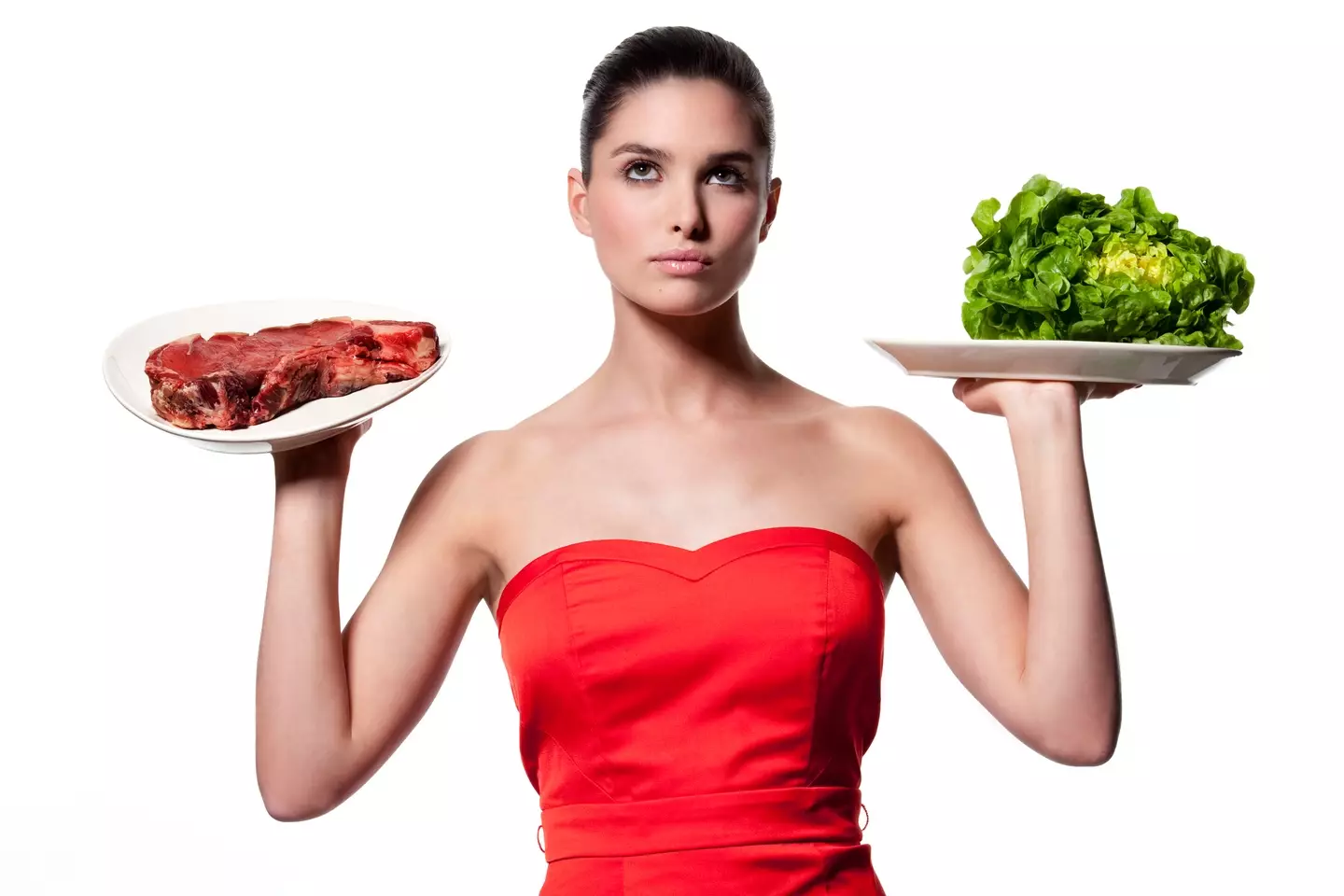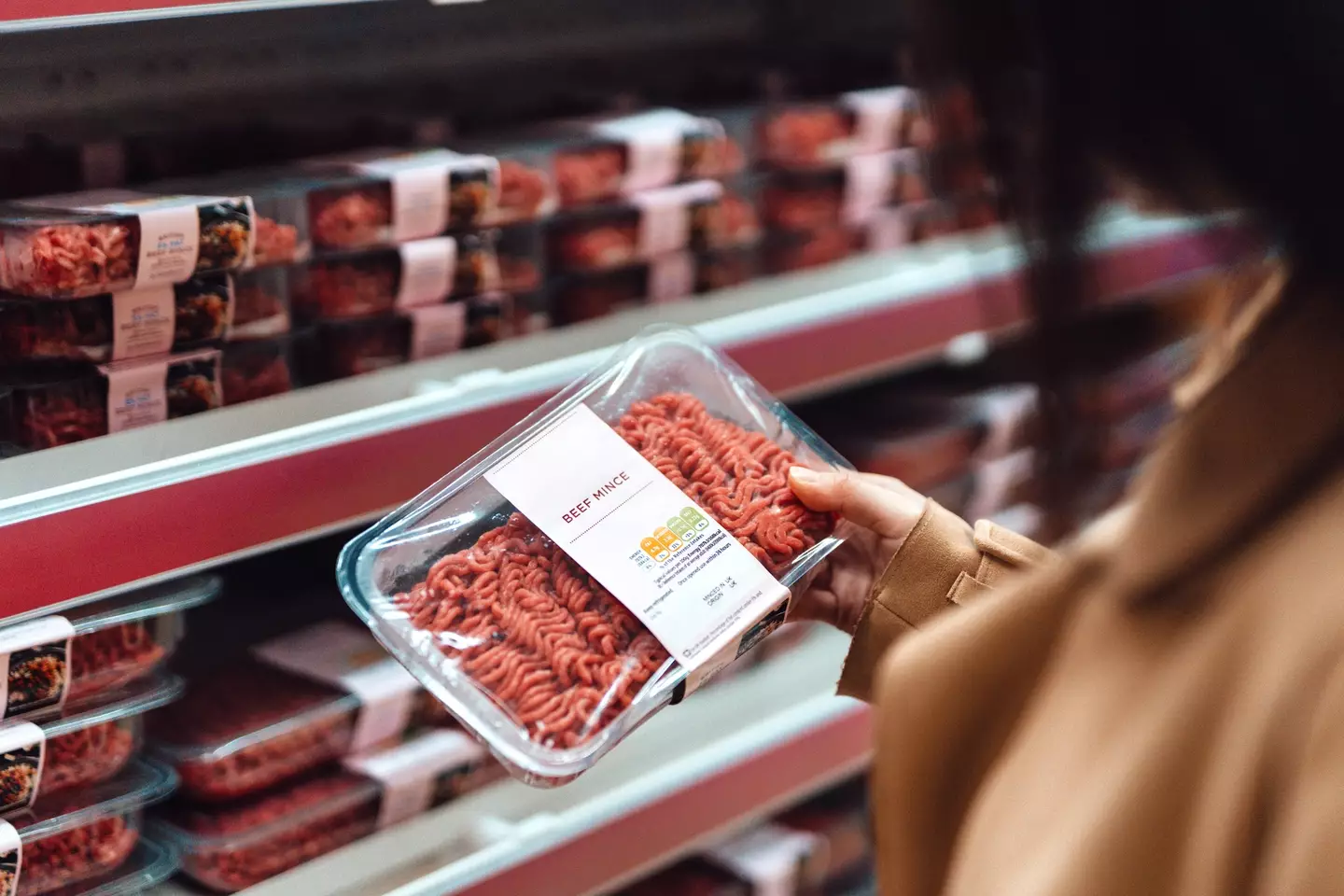
If there’s anything more annoying than being lectured on the virtues of veganism, it’s hearing people moan about vegans.
But while we’re on the subject of lectures, it’s worth pointing out that in these climate-aware times where it’s tough to know how you can do your bit, cutting down on meat is a solid way to get involved.
Red meat is particularly problematic climate-wise, with cows producing huge amounts of methane that contribute to the greenhouse effect and meat production being the leading cause of global deforestation.
Fewer trees makes for few ways in which carbon dioxide can be captured, stored, and replaced with oxygen, compounding the impact of all those cow farts.
Advert

Conversely, vegan diets can lead to as much as a 75% reduction in greenhouse gas emissions, water pollution and land use.
Along with driving less often, using public transport, taking fewer flights, recycling, and limiting water use, cutting down on meat consumption is a powerful way to lower your carbon footprint.
But to each their own. If your love for meat supersedes your interest in the environment, such is your right to continue eating it.
You don't need to go to extremes, either. If you're happy to continue eating meat, what's the harm in having a side salad?
Nevertheless, many proponents of the carnivore diet are incensed by the suggestion that limiting or cutting out meat consumption is a good idea either for themselves or the environment.
The movement often seems to be as much about getting one over on vegans as it is about the supposed benefits of eating nothing but animal products.
There seems to be a bit of both going on for Rachel Ashby, anyway, a TikTok influencer who states one of the aims of documenting her carnivore diet is to “annoy the vegans”. Whether that's a worthwhile pursuit is up to you.
Rachel claims that her six years-long diet of just meat, eggs and butter for the past four years has been a net positive for her in a physical sense.
The 41-year-old mother of four said that years of struggling to lose weight found a resolution when she watched a video by Dr Shawn Baker claiming that the carnivore diet can “reverse” autoimmune diseases and resolve ongoing mental ill health.
Taken with the idea, Rachel switched to the carnivore diet and has no intention of switching back.
She said that her meat, eggs and butter-based diet amounts to 5,000 calories a day, almost triple the recommended intake for the average 41-year-old woman.
Breakfast amounts to 10 eggs with a “chunk of butter and salt”, with lunch often being chicken wings, and dinner including two or three rib-eye steaks.
"I literally eat fat for taste, so when fat stops tasting good, that’s when I stop eating it, because that’s when my body’s had enough," she said.
Rachel said that her kids will occasionally adopt the meal plan, too: "They just kind of sometimes decide by themselves to do it, and then other times they decide to not do it.
"But they always say that their health increases when they do do it."
Unfortunately, children’s gut instinct accounts of their health rarely hold up to the scrutiny of a scientific peer review.
One must also take Rachel at her word both calorie intake and health benefits-wise, especially as both claims strongly conflict with the recognised wisdom on varied, balanced diets.

Where does the NHS stand on carnivore diets?
While Rachel claims that she feels more healthy, energetic and focused off the back of her animal based-diet, it’s not a diet that’s recommended by the NHS or any other globally-recognised health organisation.
The NHS espouses the typical approach to eating healthily: at least five portions of fruit and vegetables each day as a source of both essential nutrients and digestion-aiding fibre, additional fibre through potatoes, rice, bread, and dairy or dairy alternatives, along with a source of protein and unsaturated oils. Whether that comes from an animal or a mycoprotein is up to you, and of course beans and pulses are also fantastic protein sources.
Overconsumption of red meat has been shown time and again to increase the likelihood of developing bowel cancer. Cancer Research UK recommends that we limit our intake to 70g per day in order to pare back the risk of developing bowel cancer.
Nevertheless, Rachel and others claim the diet has been beneficial for losing weight and developing muscle mass.
She has also expanded her diet to include use of beef tallow in her beauty products, all whilst fulfilling her ambition to “annoy the vegans”.
"I never have to go hungry or feel like I need to starve myself," she continued, although you don’t need to go hungry or starve yourself on a plant-based diet either.
"I can just eat until I’m full and satisfied, whereas before, I would ignore my body’s hunger cues."
Each to their own, and it's always best to check with your GP before embarking on any specific diet.
Topics: Health
